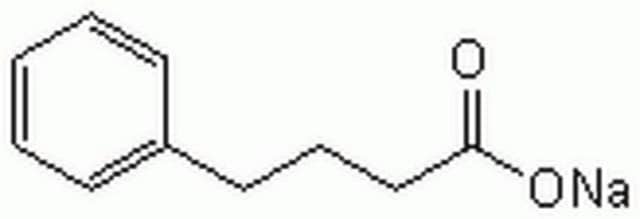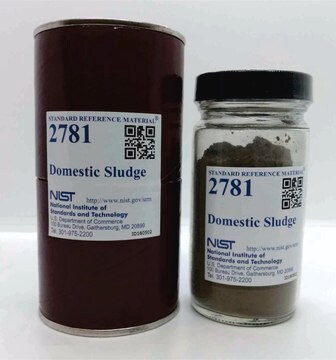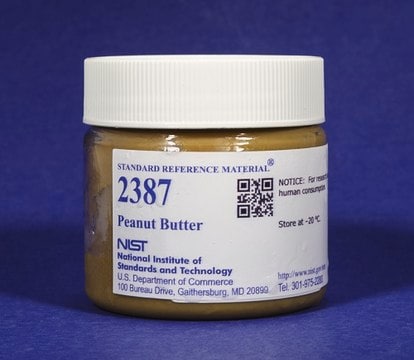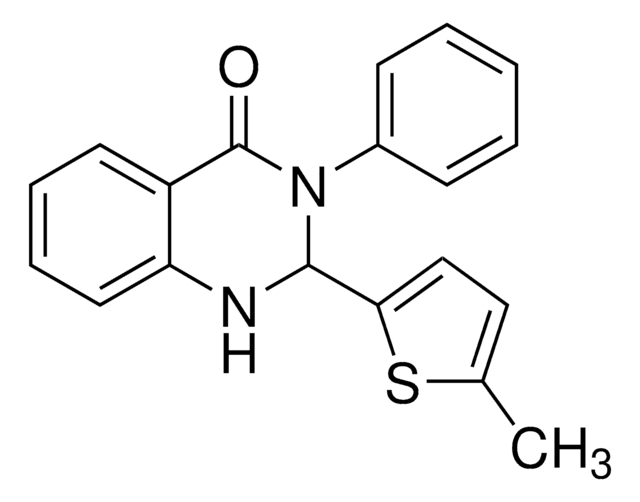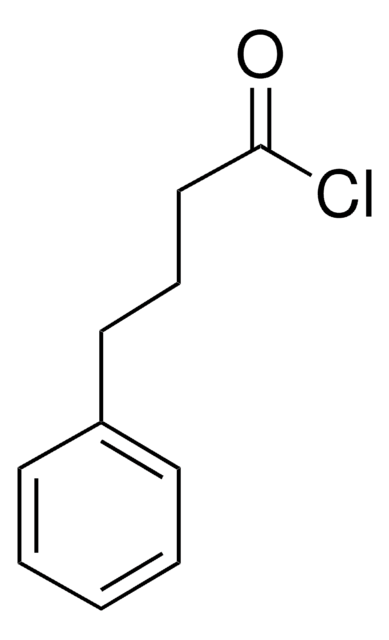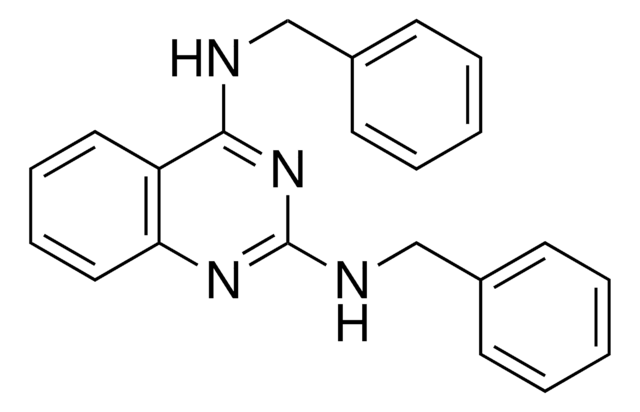P21005
4-Phenylbutyric acid
99%
Synonym(s):
γ-Phenylbutanoic acid, ψ-Phenylbutanoic acid, 4-Phenyl-n-butyric acid, 4-Phenylbutanoic acid, Benzenebutyric acid
Sign Into View Organizational & Contract Pricing
All Photos(2)
About This Item
Linear Formula:
C6H5(CH2)3COOH
CAS Number:
Molecular Weight:
164.20
Beilstein:
638180
EC Number:
MDL number:
UNSPSC Code:
12352100
PubChem Substance ID:
NACRES:
NA.22
Recommended Products
Quality Level
Assay
99%
form
crystals
bp
165 °C/10 mmHg (lit.)
mp
49-51 °C (lit.)
SMILES string
OC(=O)CCCc1ccccc1
InChI
1S/C10H12O2/c11-10(12)8-4-7-9-5-2-1-3-6-9/h1-3,5-6H,4,7-8H2,(H,11,12)
InChI key
OBKXEAXTFZPCHS-UHFFFAOYSA-N
Looking for similar products? Visit Product Comparison Guide
General description
4-Phenylbutyric acid (4-PBA) is used in the treatment of urea cycle disorders.
Application
4-PBA has been used as a selective inhibitor of endoplasmic reticulum stress (ERS).
It can also be used as a reactant in the synthesis of:
It can also be used as a reactant in the synthesis of:
- 1-Tetralone using Lewis acid catalyst.
- 4,N-diphenylbutyramide.
Storage Class Code
11 - Combustible Solids
WGK
WGK 3
Flash Point(F)
Not applicable
Flash Point(C)
Not applicable
Personal Protective Equipment
dust mask type N95 (US), Eyeshields, Gloves
Choose from one of the most recent versions:
Already Own This Product?
Find documentation for the products that you have recently purchased in the Document Library.
Customers Also Viewed
Induction of apoptosis coupled to endoplasmic reticulum stress through regulation of CHOP and JNK in bone marrow mesenchymal stem cells from patients with systemic lupus erythematosus
Guo G, et al.
Journal of immunology research (2015)
The therapeutic effects of 4-phenylbutyric acid in maintaining proteostasis.
Kolb PS, et al.
The International Journal of Biochemistry & Cell Biology, 61, 45-52 (2015)
Min Han Kim et al.
Clinical and experimental otorhinolaryngology, 12(2), 181-189 (2018-10-20)
Endoplasmic reticulum (ER) stress is known to be associated with inflammatory airway diseases, and three major transmembrane receptors: double-stranded RNA-activated protein kinase-like ER kinase, inositol requiring enzyme 1, and activating transcription factor 6 (ATF6) play important roles in ER stress-related
Synthesis of 1-tetralones by intramolecular Friedel?Crafts reaction of 4-arylbutyric acids using Lewis acid catalysts
Cui DM, et al.
Tetrahedron Letters, 44(21), 4007-4010 (2003)
Clean, reusable and low cost heterogeneous catalyst for amide synthesis
Comerford JW, et al.
Chemical Communications (Cambridge, England), 18(21), 2562-2564 (2009)
Our team of scientists has experience in all areas of research including Life Science, Material Science, Chemical Synthesis, Chromatography, Analytical and many others.
Contact Technical Service
